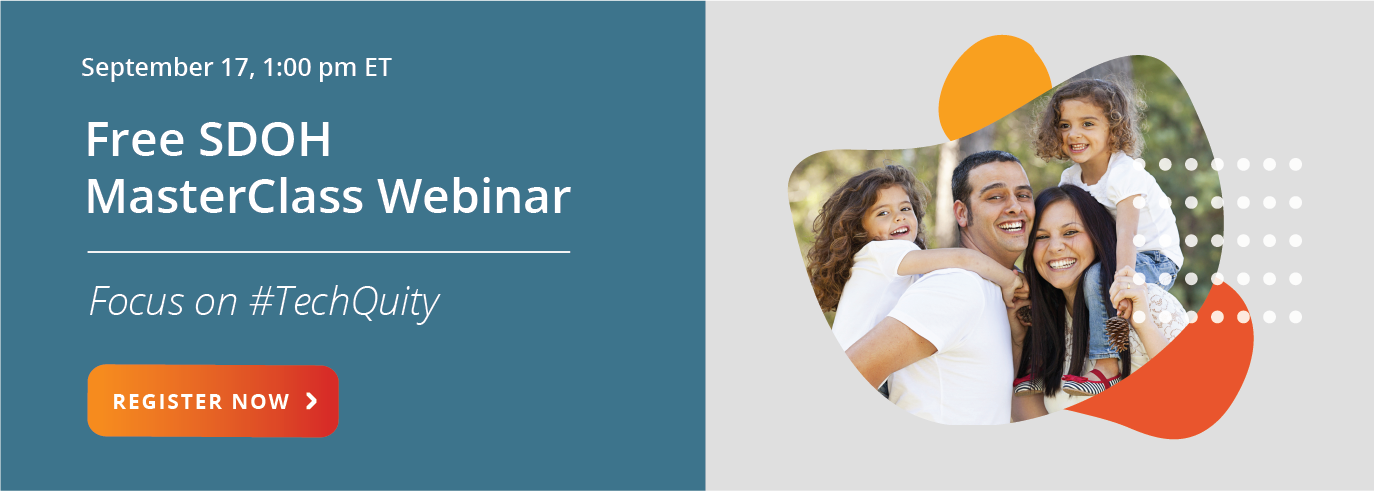I recently came across TechQuity in an email subject line from the Journal of Healthcare for the Poor and Underserved, where some of my early-career public health research had been published years ago. IBM, Brigham and Women’s Hospital, and Vanderbilt University Medical Center are championing a special issue of the journal to showcase efforts to leverage technology to transform health, public health, and healthcare, and promote health equity. (If you submitted an abstract to this issue, I would love to hear from you!)
As a portmanteau that blends the sounds and meanings of “tech” and “equity,” TechQuity is the consideration, design, development, and implementation of technology solutions that promote, assure, and potentially enhance health equity. Is this speaking your language like it’s speaking mine?
TechQuity speaks to my passion for helping communities use technology to improve quality of life, and for developing technology for underserved communities.
One area of concern for us at Activate Care is health literacy, which is the degree to which people understand basic health information needed to make appropriate health decisions. Low health literacy is especially prevalent among communities with low English proficiency (i.e., non-native English speakers).
We can help communities implement culturally and linguistically appropriate services.
We’re proud to announce the general availability of our Spanish Language platform. More than 25 million people in the United States speak little English, and Spanish is typically the second most commonly spoken language in any given community. As a mission-driven organization, it is critical to the team at Activate Care that we do everything possible to reduce language barriers, especially for vulnerable populations.
We recognize that most of the systems that support care coordination and patient engagement - like patient portals and telehealth platforms - are created in English. This makes them inherently hard to access for people who primarily speak other languages. Interpreter services help reduce these barriers, but the systems we use to coordinate health and social care need to do better. This is what our customers expect - and this is what we expect of ourselves.
Activate Care is committed to making our platform available, accessible, and engaging in every language spoken by the communities we serve.
We know that to get someone on a path to better health, it takes a community.
The journey to better health, especially for underserved communities, is a complex one with set backs, successes, and everything in between. When parts of the processes are buried in separate electronic health records, referral tools, spreadsheets, and sticky notes, our system is actually adding to the problem - delivering a fragmented care experience, rather than a coordinated one. We are here to change all that.
Better care is more than building electronic health records or tech-enabled screen and refer tools. It is about enabling real health and community care teams, capturing person-centered goals, and supporting the healthcare journey. It isn’t one size fits all, and it isn’t over in 30, 60, or sometimes even 90 days. But what we do know, is that when we treat the path to health as the complex, multi-faceted journey that it is, we can actually improve outcomes, change lives, and get it right, rather than continually failing to help the people who need us most.
I hope you’ll consider joining me and my colleague, Alejandro Gutierrez, for our upcoming SDOH MasterClass webinar, Focus on #TechQuity: Influencing Health Literacy, Equity, and Disparities with Spanish-Speaking Communities. Alejandro and I are part of the Product Team at Activate Care, where we translate local requirements for health and social care interventions into product features that work for care teams across the country. This special #TechQuity edition of SDOH MasterClass explores technology’s impact on health literacy, health equity, and health disparities that, while always a topic of concern, have been exacerbated by the COVID-19 pandemic and nationwide civil unrest.
Remember: It takes a community!
